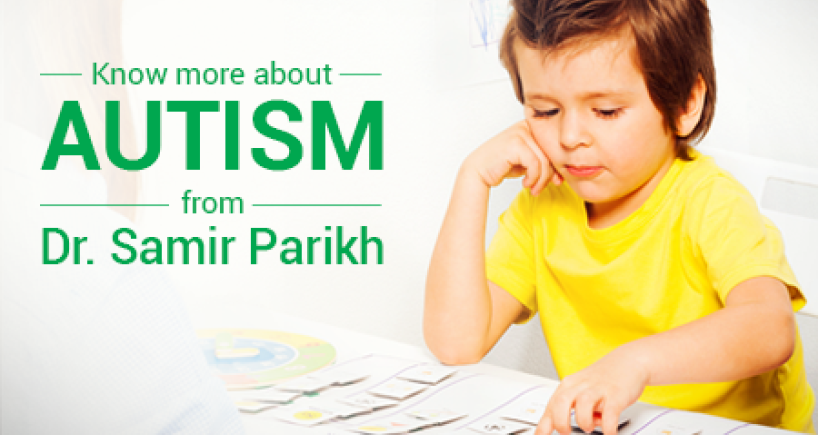
World Autism Day

With an increasing awareness growing around the field of mental health, some of us today have heard of the word autism. However, there is still a large section of the society that would not have a clear understanding of the autism spectrum and what such a diagnosis connotes, in addition to those who are likely to have never even heard of the existence of such a word. Therefore, as we celebrate world autism day, it becomes necessary to create an awareness about this spectrum of not so well-understood disorders, in order to create a brighter future, with more of us equipped with the knowledge and sensitivity towards autism.
At the same time, we need to avoid stigmatization. To help the individual adjust to the environment around him/her, it is important for you as a caregiver to not feel ashamed or stigmatized of the condition. Autism is not a fault in your child or a result of your parenting. It is a medical condition, and the individual has a right to be allowed to live a normal life.
It is common to observe children who appear to be behaving differently or unusually, and many a times, such behavior is brushed off as a growing phase of the child, as we expect it to diminish with growing years. However, such behavioural issues could be manifestations of developmental or behavioural disorders, which are best managed with the earliest identification and timely interventions.
Autism is a developmental disorder that inhibits socialization. Autism spectrum disorders (ASD) are a group of conditions characterized by three cardinal clinical features: qualitative impairments in social interactions; qualitatively impaired verbal and non-verbal communication; and restricted range of interests. Autism Spectrum Disorder usually emerges before the age of 3 as symptoms start becoming visible by the 18th month especially when the language skills do not develop as expected. However, while autism is most commonly heard of in children, it is typically diagnosed in childhood, but could be manifested in adulthood.
Some of the common signs and symptoms of such a spectrum of disorders could include difficulty in communication and social interactions, as the individual might not be able to reciprocate effectively, or reciprocate emotionally in the form of non-verbal cues. Such individuals also tend to have sensory difficulties, wherein they might be averse to certain forms of physical contact, while at the same time expressing a preoccupation for another kind of sensory stimulus like a soft toy. Further, they would have difficulty in making eye contact, would not be likely to show an interest in making friends or sharing interests with others, preferring to be lost in their own world. Such individuals could also exhibit some stereotyped or repetitive movements, or also following some particular rituals. In fact, they are likely to prefer adhering to specific routines in such a way that even a minor change is likely to make them feel uncomfortable.
Early intervention is a critical and very important aspect as it not only helps in developing intervention programs that work on the social, language, communication, and helps in establishing self helps skills for the individual, but also helps parents and care givers to understand the actual condition of their child.
As parents, we might often notice some unusual behaviours in our child, but ignore them, denying the likelihood of a medical condition. However, it is important for you as parents to be aware of the warning signs, and aim at the earliest identification of such disorders. Remember, the earlier interventions have the greatest efficacy. Therefore, it is important to encourage adequate help seeking behavior. Without an adequate basis of awareness, we all need to be reassured that autism is a diagnosable illness, and not something to be baffled with. Professional help is irreplaceable, as it requires earliest diagnosis and timely interventions by a team of psychiatrists, psychologists, occupational therapists, speech therapists, etc. Remember, you are not alone. If you find it difficult to overcome the challenges faced by your child, do not hesitate to seek the support of other parents in autism support groups or professional mental health experts. There is an increasing availability of such support systems available in India.
Categories
Clear allMeet the doctor

- Mental Health and Behavioural Sciences | Mental Health and Behavioural Sciences | Psychiatry | Clinical Psychology
-
21 Years
-
900



















